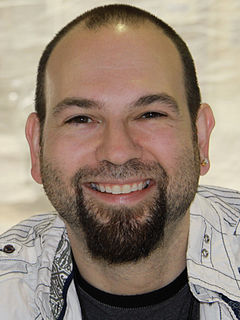A Quote by Willem Dafoe
I set myself challenges every time I work. Ideally I approach everything as though it's the first time - with a beginner's mind and an amateur's love.
Quote Topics
Related Quotes
Every time I start on a new book, I am a beginner again. I doubt myself, I grow discouraged, all the work accomplished in the past is as though it never was, my first drafts are so shapeless that it seems impossible to go on with the attempt at all, right up until the moment - always imperceptible, there, too, there is a break - when it is has become impossible not to finish it.
The practice of Zen mind is beginner's mind. The innocence of the first inquiry—what am I?—is needed throughout Zen practice. The mind of the beginner is empty, free of the habits of the expert, ready to accept, to doubt, and open to all the possibilities. It is the kind of mind which can see things as they are, which step by step and in a flash can realize the original nature of everything.
In Japan we have the phrase, "Shoshin," which means "beginner's mind." Our "original mind" includes everything within itself. It is always rich and sufficient within itself. This does not mean a closed mind, but actually an empty mind and a ready mind. If your mind is empty, it is always ready for anything. It is open to everything. In the beginner's mind there are many possibilities; in the expert's mind there are few.
I try to set an intent every morning and take time to think about whatever I hope to achieve that day. I've learned that there's never going to be enough time to do anything. It's never going to be a perfect day, and I'm at a point in my life where my children are more important than work. Work is still important to me though, and I love what I do.
I like to believe that I don't think of myself as a writer. I am an amateur. Back when I was teaching, I wrote when I could. Weekends were good typewriter time. Now, it's whenever I feel there's something to be put on paper. I don't care what time it is, though I always write in the notebooks at night.
When I first began choreographing, I never thought of it as choreography but as expressing feelings. Though every piece is different, they are all trying to get at certain things that are difficult to put into words. In the work, everything belongs to everything else - the music, the set, the movement and whatever is said.
Consider the word “time.” We use so many phrases with it. Pass time. Waste time. Kill time. Lose time. In good time. About time. Take your time. Save time. A long time. Right on time. Out of time. Mind the time. Be on time. Spare time. Keep time. Stall for time. There are as many expressions with “time” as there are minutes in a day. But once, there was no word for it at all. Because no one was counting. Then Dor began. And everything changed.
So the most difficult thing is always to keep your beginner's mind. There is no need to have a deep understanding of Zen. Even though you read much Zen literature, you must read each sentence with a fresh mind. You should not say, "I know what Zen is," or "I have attained enlightenment." This is also the real secret of the arts: always be a beginner. Be very very careful about this point. If you start to practice zazen, you will begin to appreciate your beginner's mind. It is the secret of Zen practice.
When you're a teenager, everything is amplified because everything is a first. The first time you feel othered, the first time you feel rejected, the first time you fall in love... it's the first time, so it's so vivid, and everything feels like the whole world almost, because it is your whole world; your world is small when you're a teenager.

































